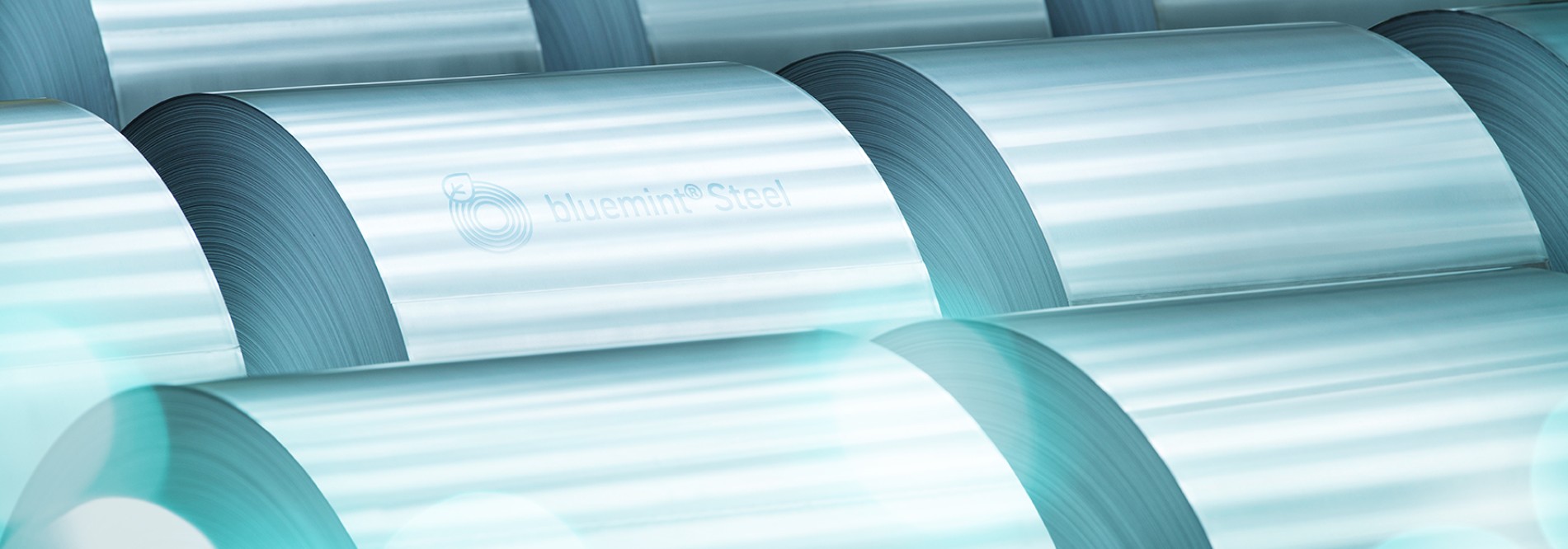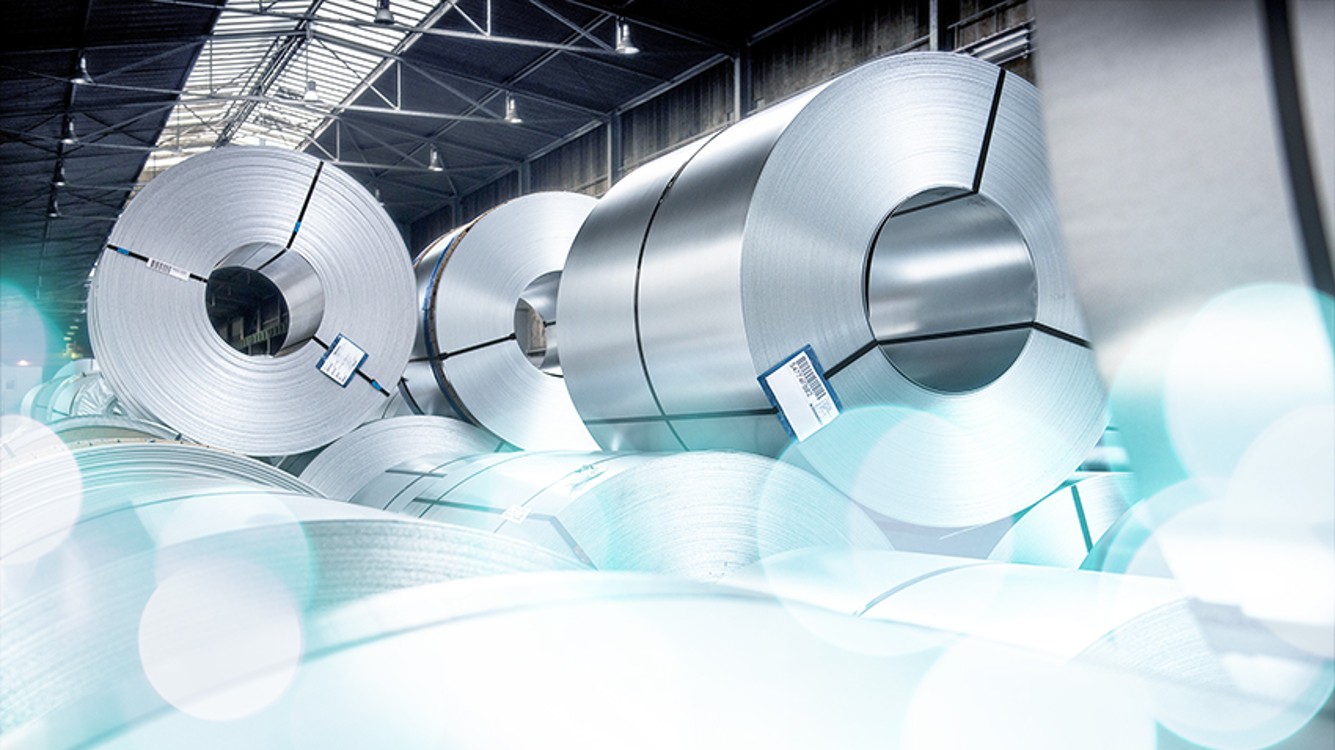bluemint® Steel certification
Our certificates
bluemint® recycled
The second steel from the bluemint® product family also enables significant CO2 reductions. Customers who opt for bluemint® recycled save 1.35 tonnes of CO2 per tonne of material. This is equivalent to a 64 percent reduction compared with conventional steel. The reductions are achieved at the Duisburg site by using 100 percent processed steel scrap in the production of bluemint® recycled to replace a portion of the coking coal in the blast furnace. The specific emissions for the material are confirmed externally by TÜV SÜD and certified to all customers by means of a certificate.
bluemint® pure
The new bluemint® Steel product family has enormous CO2 reduction potential: By purchasing one tonne of bluemint® pure, customers save 1.5 tonnes of CO2 compared with the same amount of conventionally produced steel. Production of this new climate-friendly product at the Duisburg site is completely balance-sheet CO2-free. A residual amount of 0.6 tonnes remains, caused by emissions from the so-called upstream chain, i.e. all process steps upstream of production in Duisburg - for example production and transport. This corresponds to a total CO2 reduction of around 70 percent.
This is made possible by a technical process where sponge iron (HBI) previously produced for bluemint® pure replaces a portion of the coking coal in the blast furnace process. In the long run, bluemint® Steel is to be complemented by a climate-friendly steel produced on innovative hydrogen-fuelled direct reduction plants. The certification of the process chain by the DNV externally confirms and validates the CO2 reductions of bluemint® pure. thyssenkrupp Steel fully documents all emissions arising along the upstream chain (see previous passage) in a transparent way. The so-called “carbon intensity“ of bluemint® pure amounts to 0.6 tonnes of CO2 per tonne of hot strip and is certified to all customers by means of a certificate.



